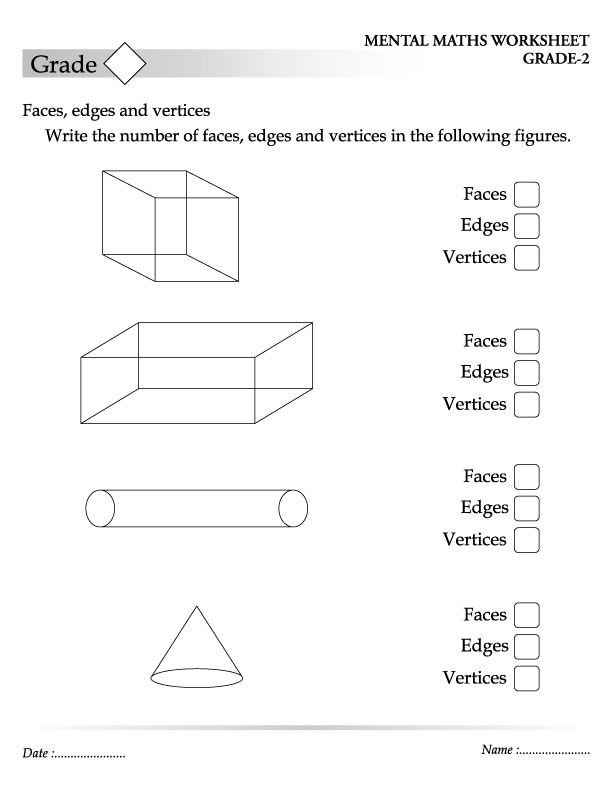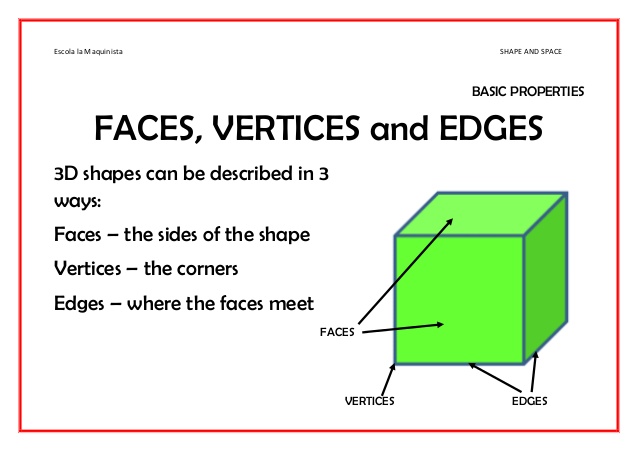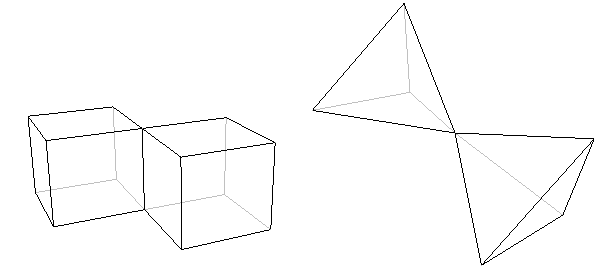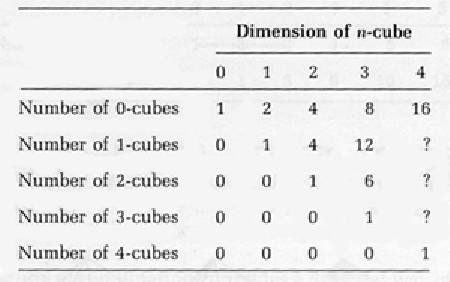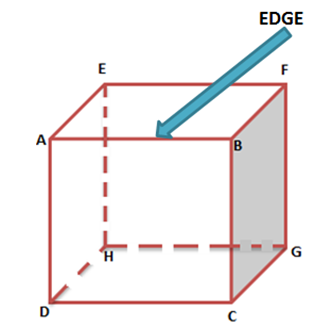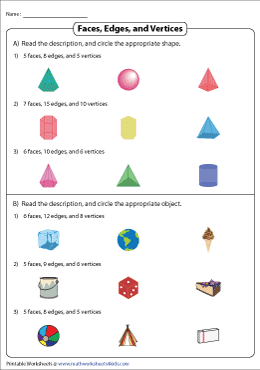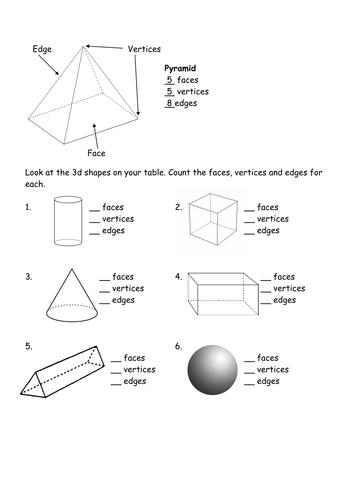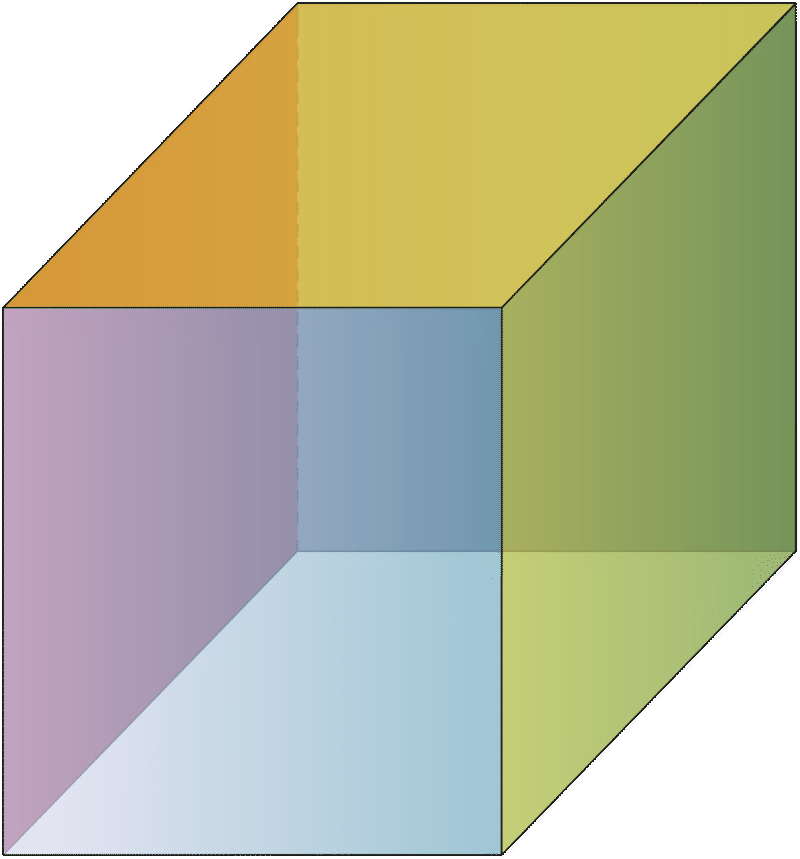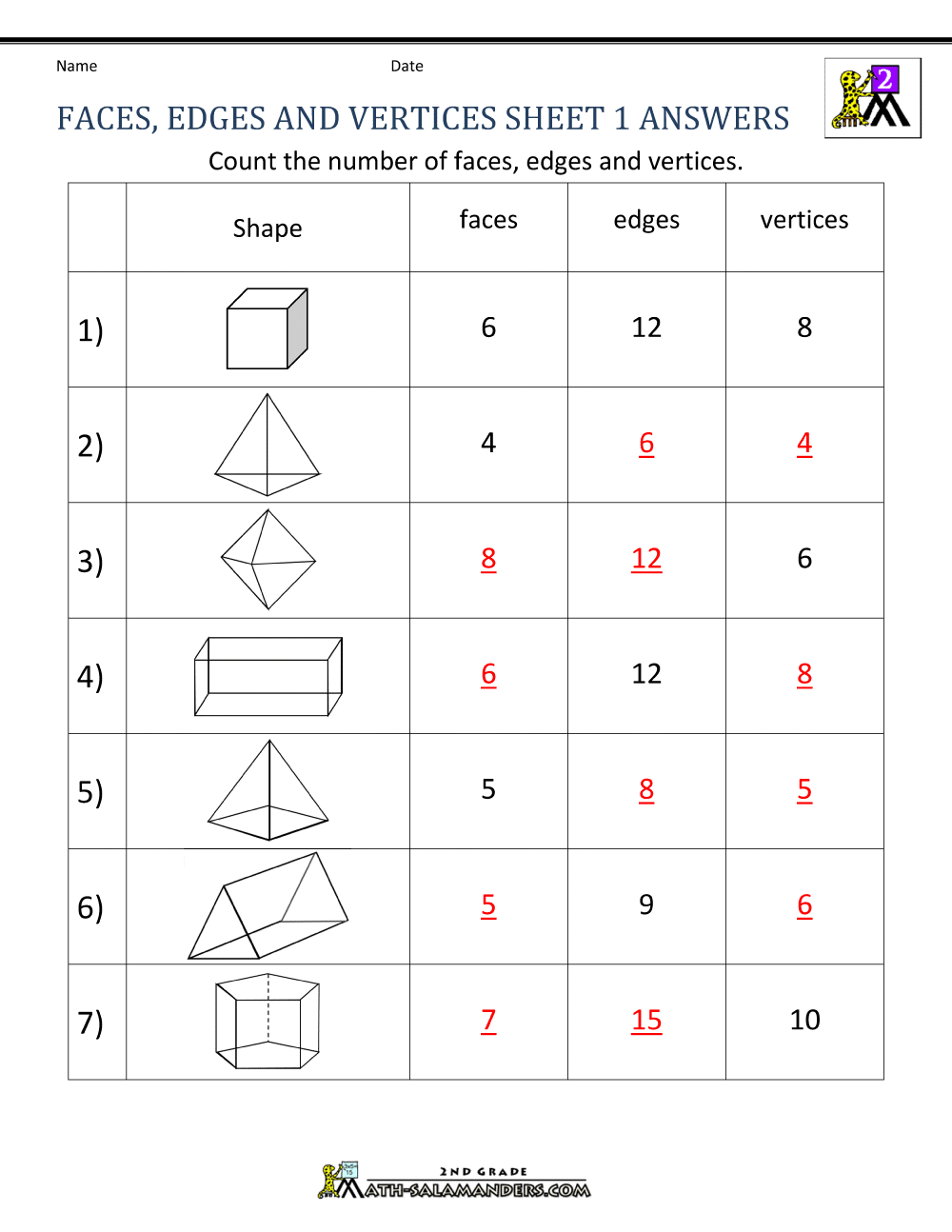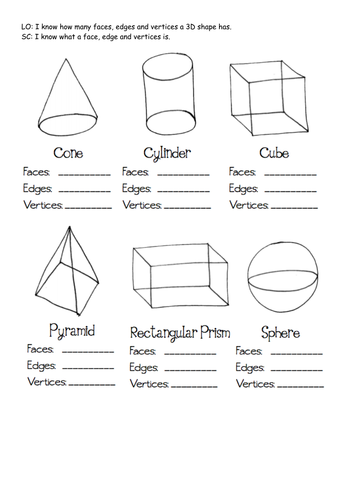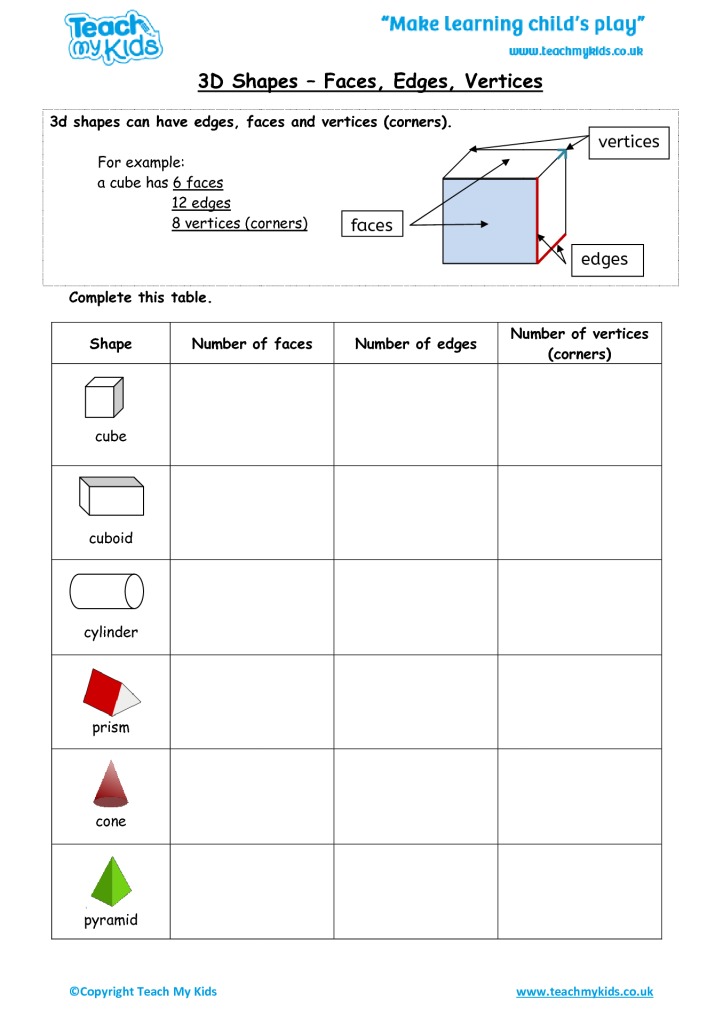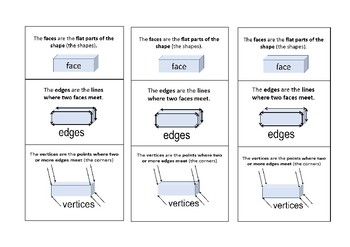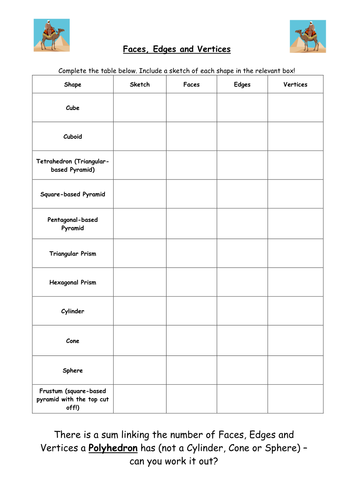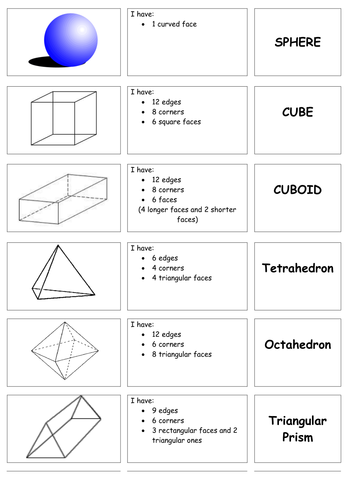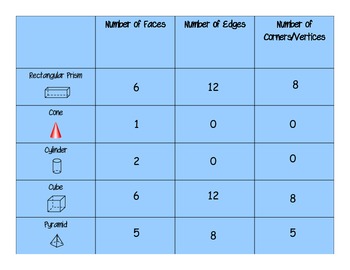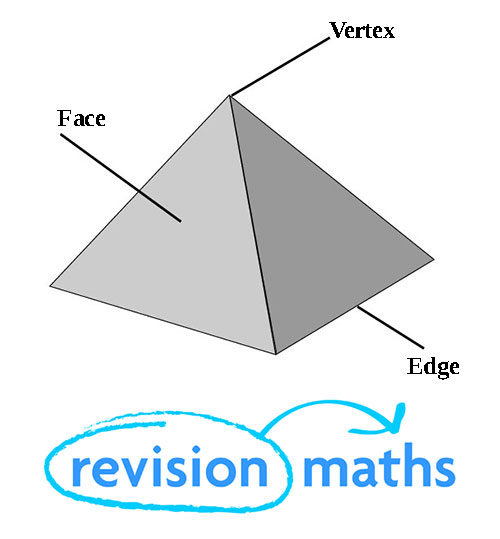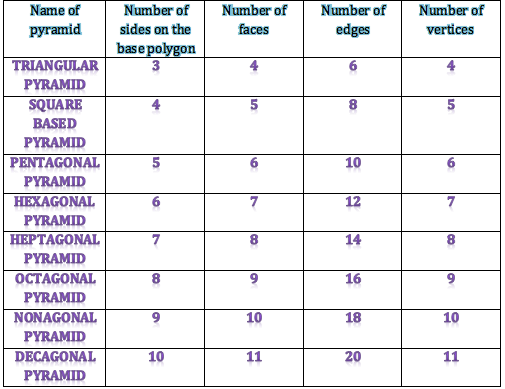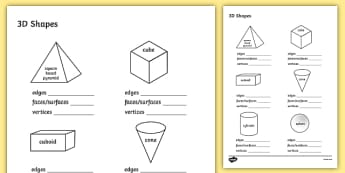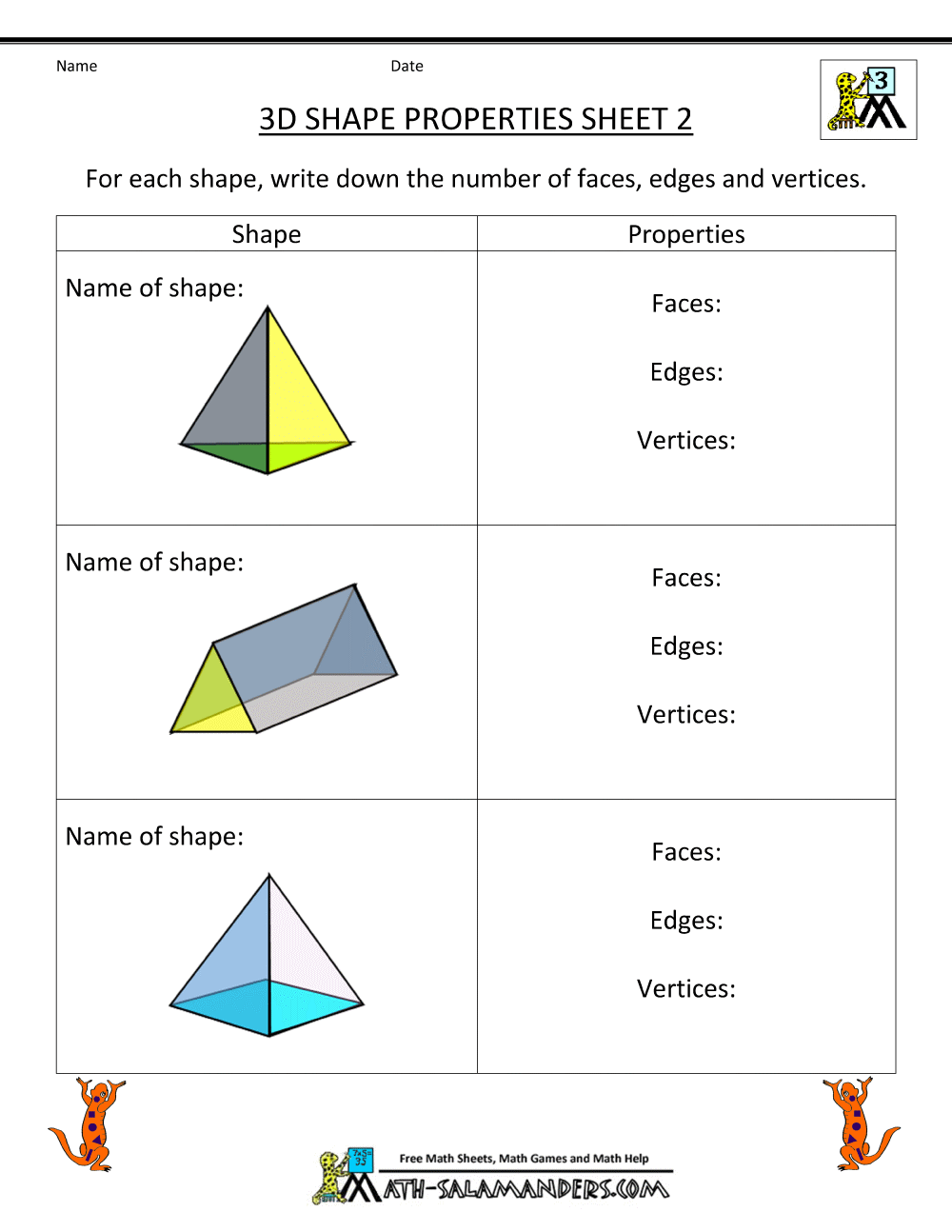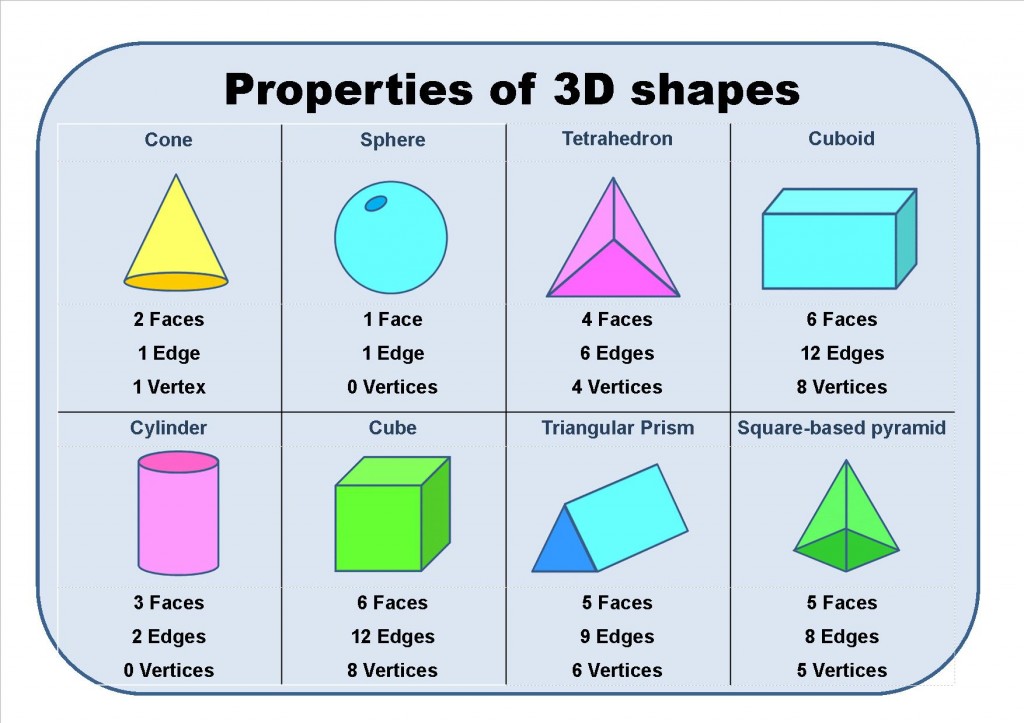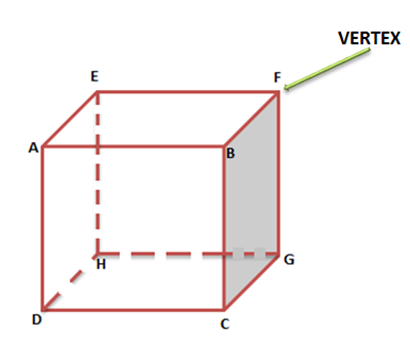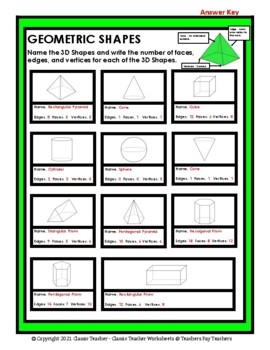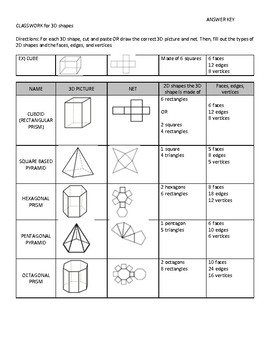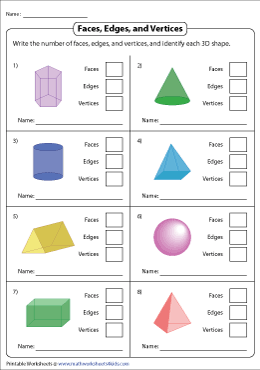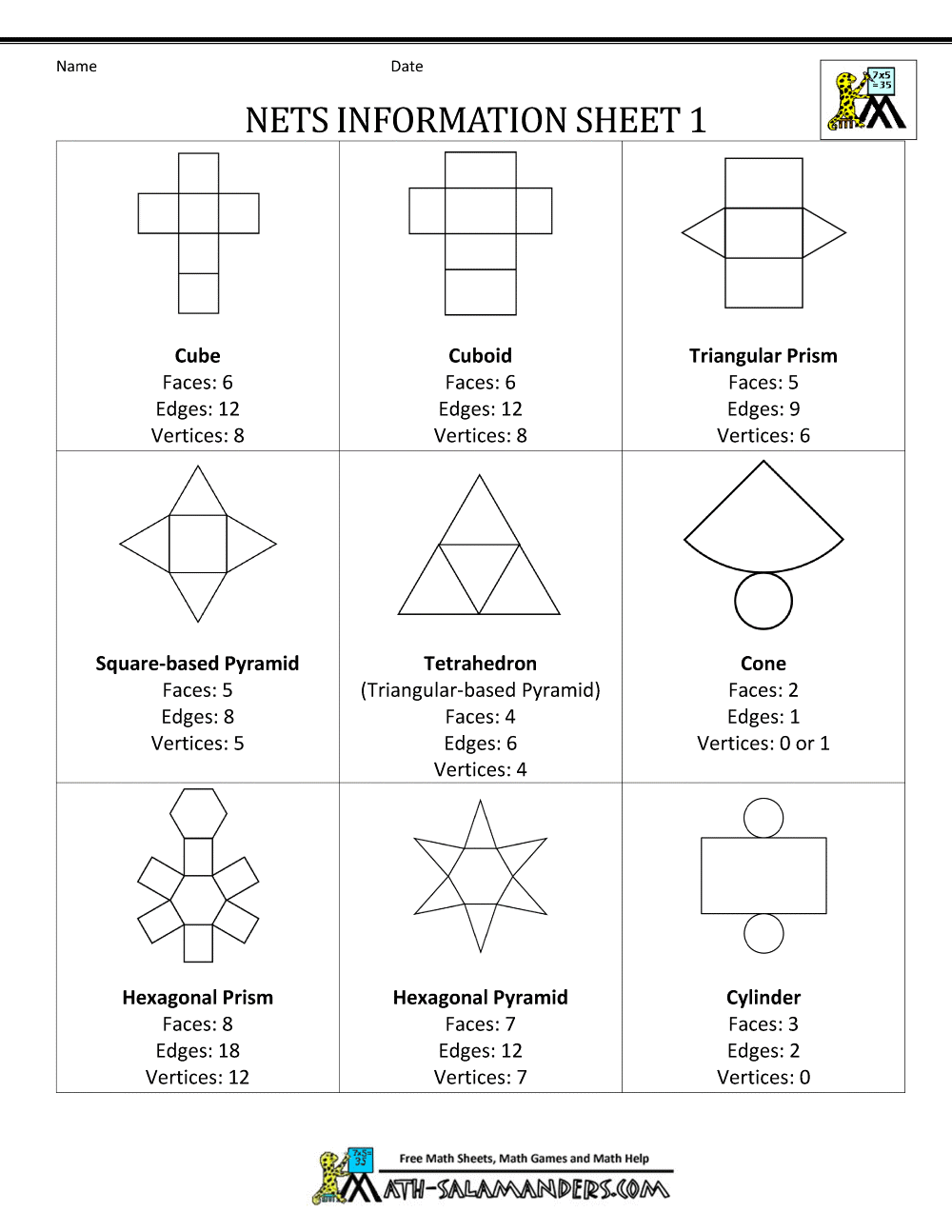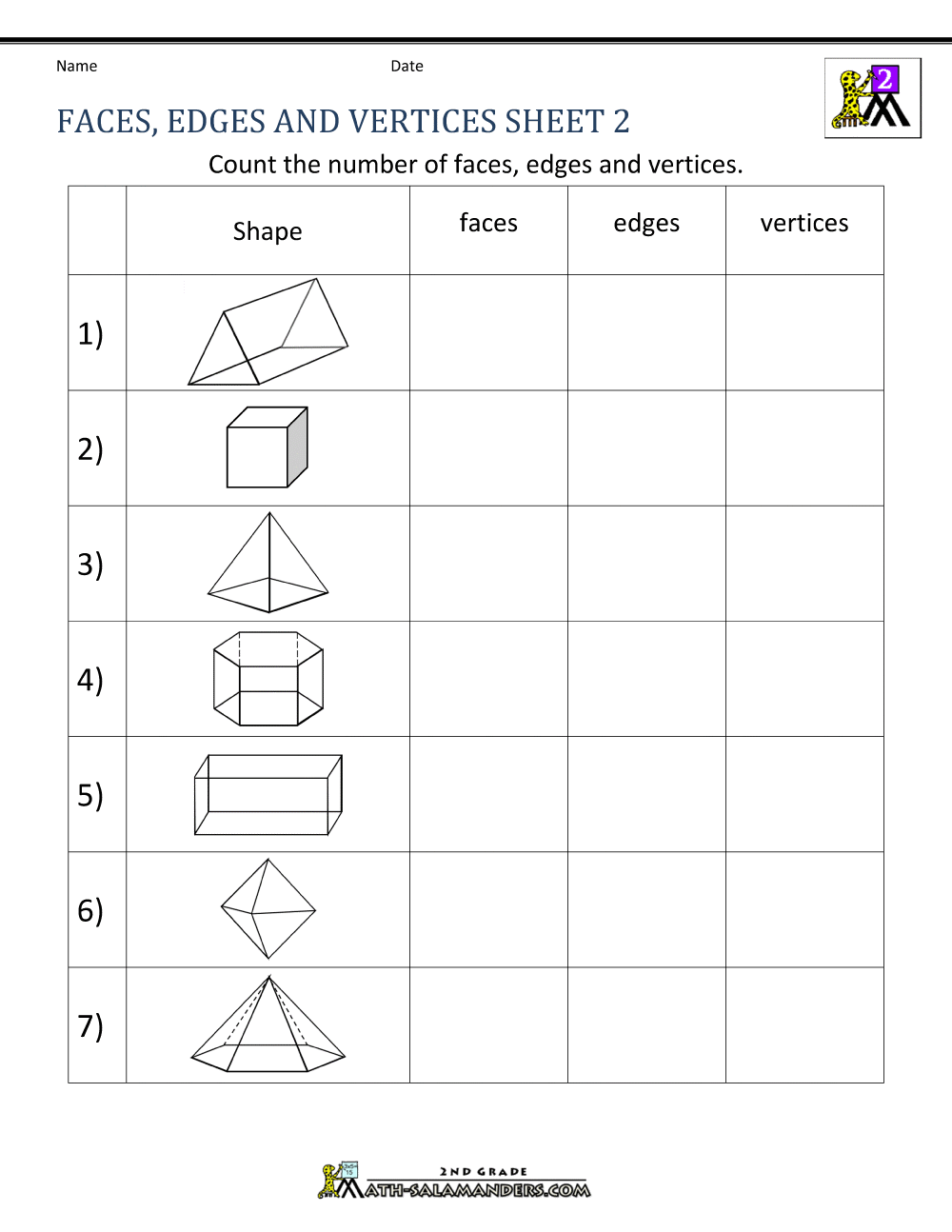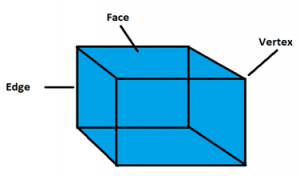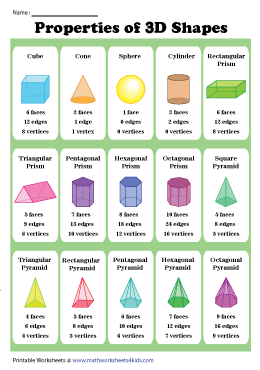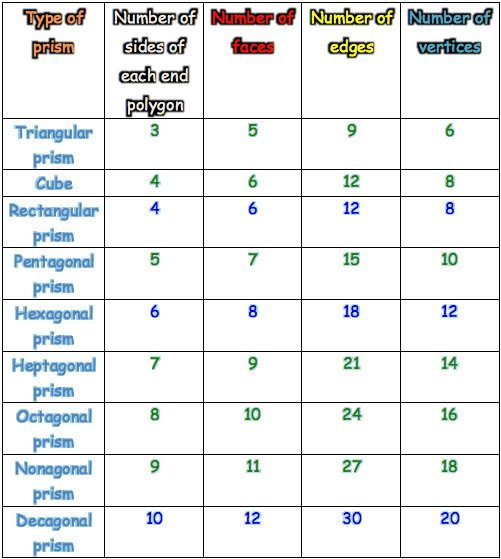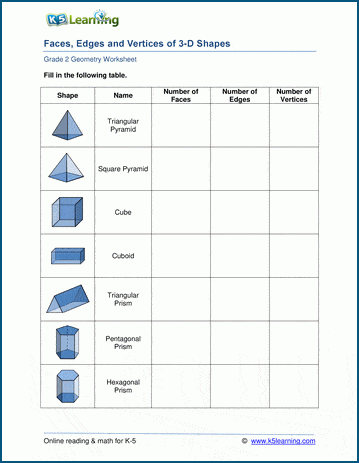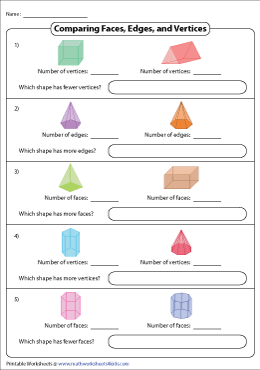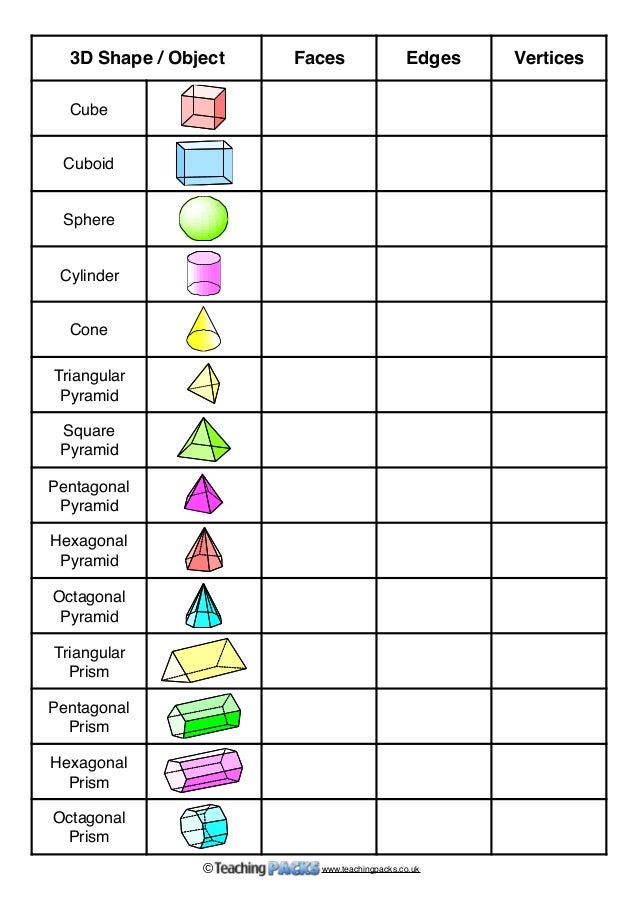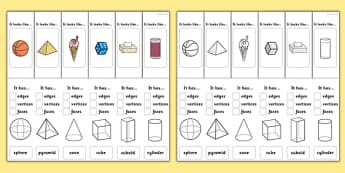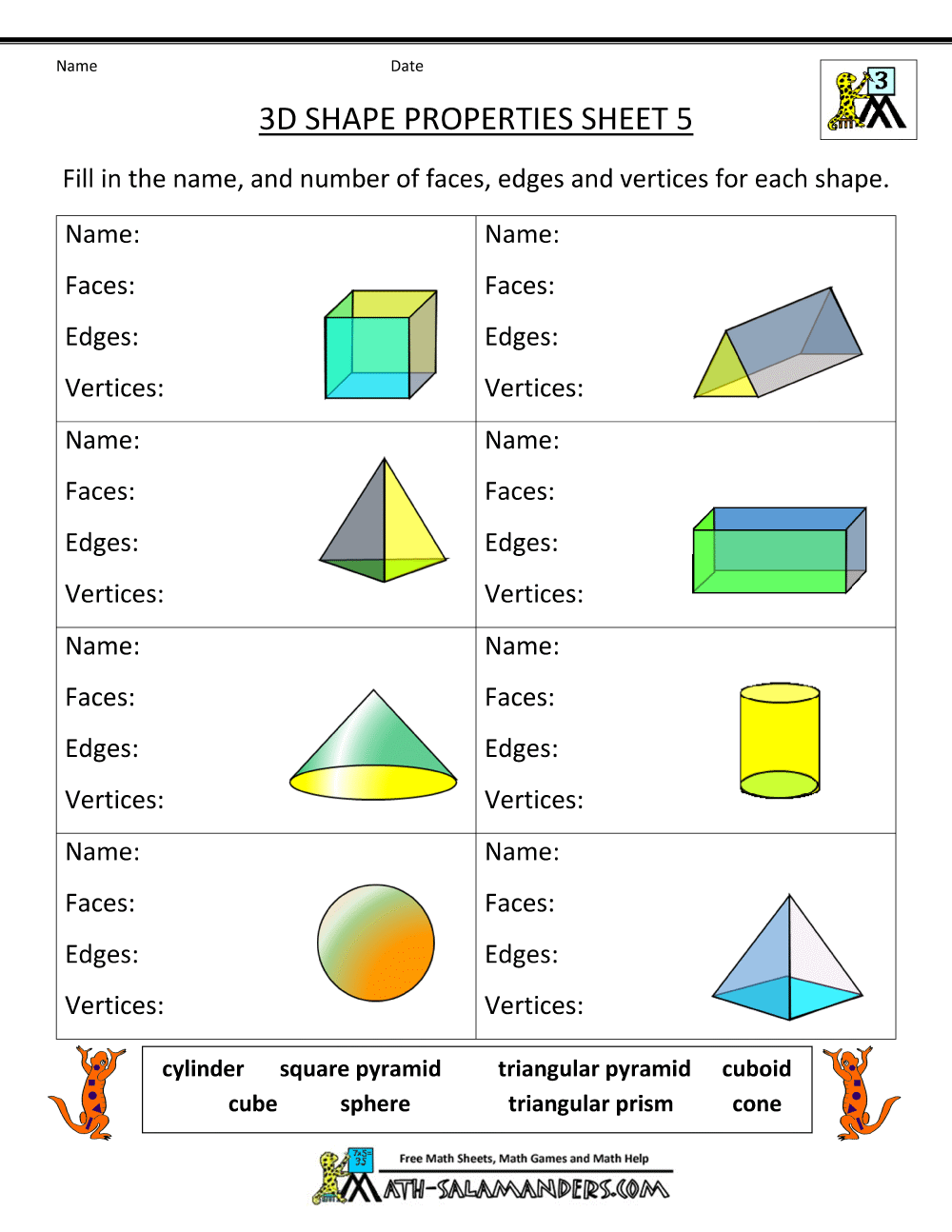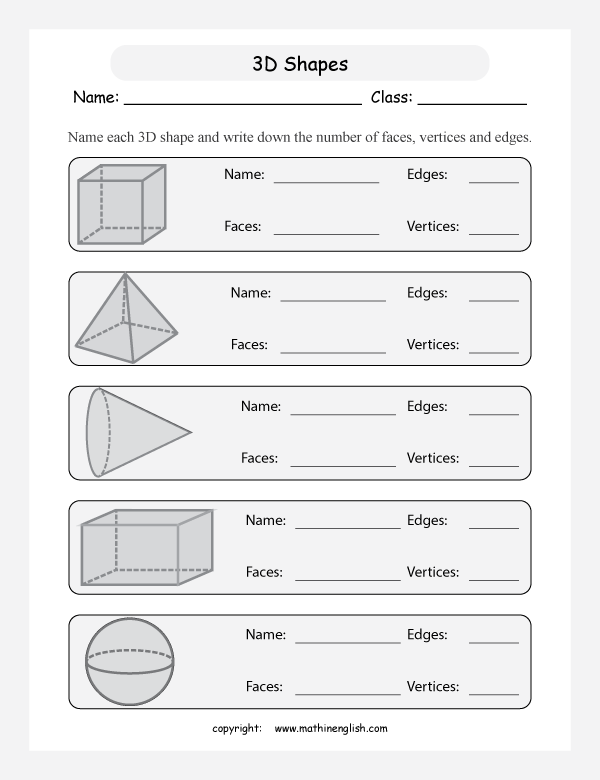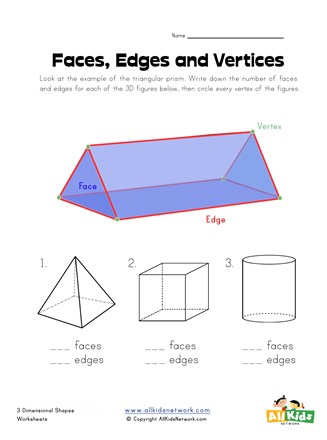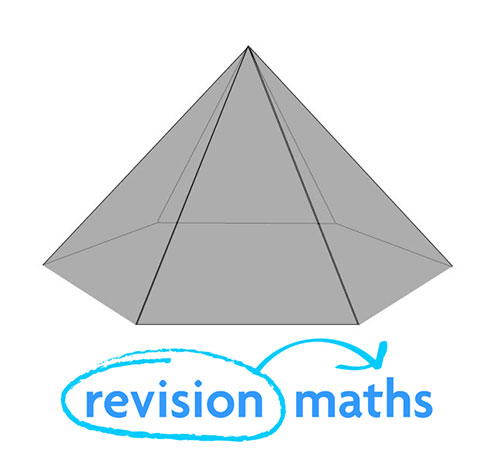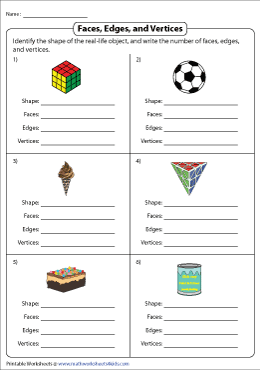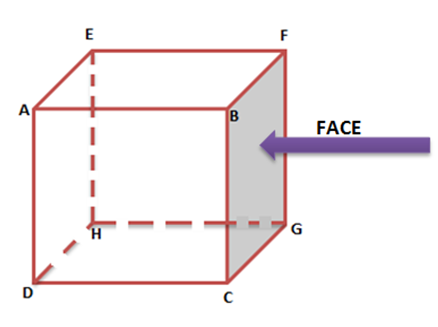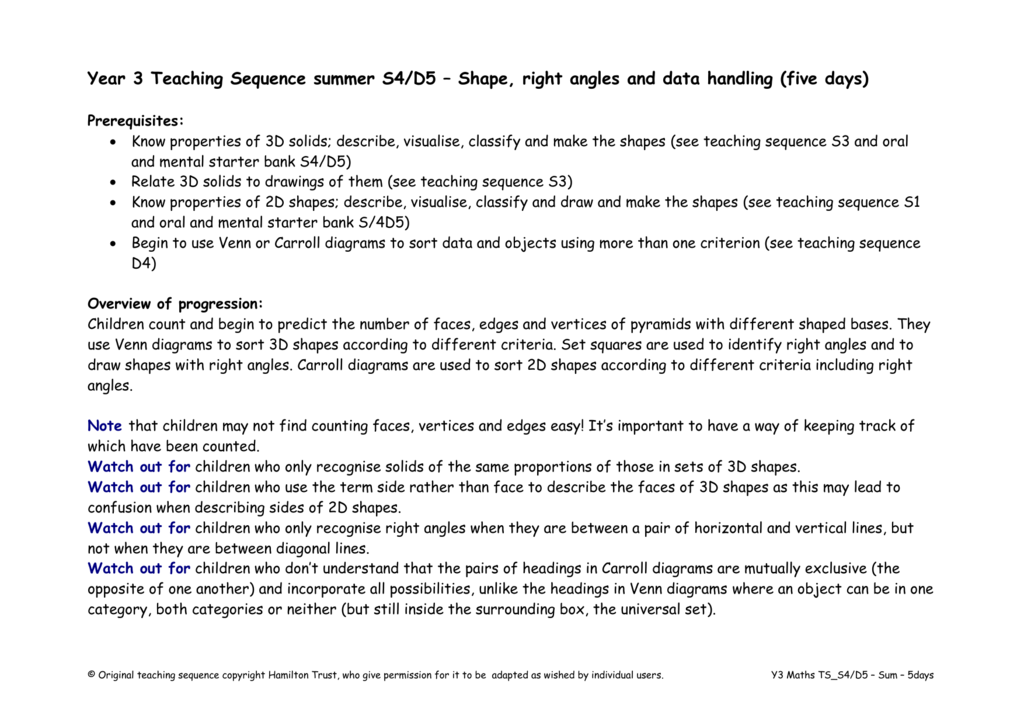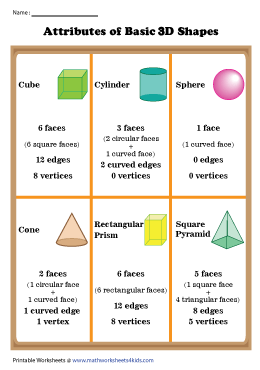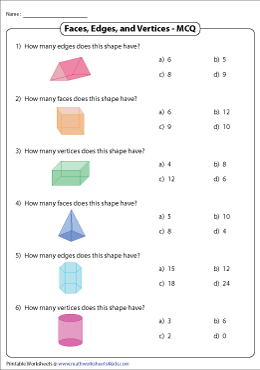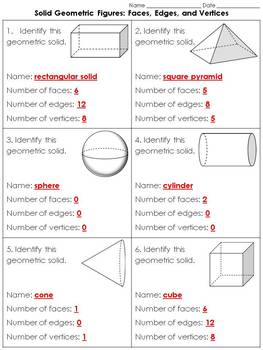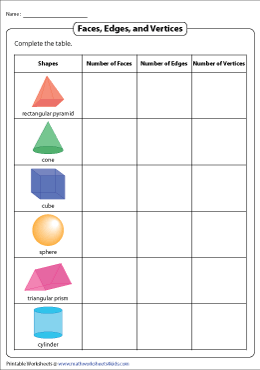Number Of Faces Edges And Vertices Of 3d Shapes
For a polygon we can say that an edge is a line segment on the boundary joining one vertex corner point to another.
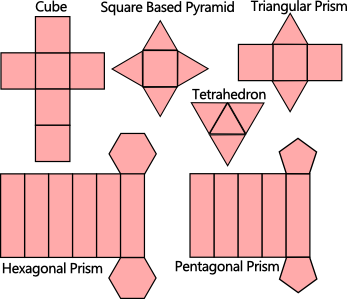
Number of faces edges and vertices of 3d shapes. An edge in a shape can be defined as a point where two faces meet. A cuboid has 6 rectangular faces which are the outside surfaces of a 3d shape. A cuboid has exactly the same number of faces edges and vertices as a cube. Edges of 3d shapes.
Give momentum to your practice with this complete the 3d shapes attributes table pdf. If youre behind a web filter. Edges are straight lines which serve as the junction of two faces. Complete the 3d shapes properties table.
The cube shown below has 12 edges namely ab bf ef ae ad dh eh hg fg bc cg and cd. A cuboid has 12 straight edges which are the lines between the faces. Cones have 1 edge. Sal identifies the faces and edges on various 3d shapes.
A cuboid has 12 edges. A cone has 1 vertex. A cube has eight vertices. The faces meet each other at edges.
Vertices of 3d shapes. Sal identifies the faces and edges on various 3d shapes. The points of intersection of edges denote the vertices. A cone has 1 circular edge.
The line segments that form the skeleton of the 3d shapes are known as edges. A cone has one plane surface ie base and one curved lateral surface. Cylinders have 2 edges. A cube has six square faces.
A cube has 12 edges. A cuboid has 8 vertices. A cuboid has 8 vertices which are its corners where the edges meet. Kids in 1st grade and 2nd grade observe each solid count the number of faces edges and vertices in each 3 dimensional shape and complete the information in the table.
Faces edges and vertices cylinder a cylinder has a curved lateral surface and two circular faces at its ends. For example a tetrahedron has 4 edges and a pentagon has 5 edges.

